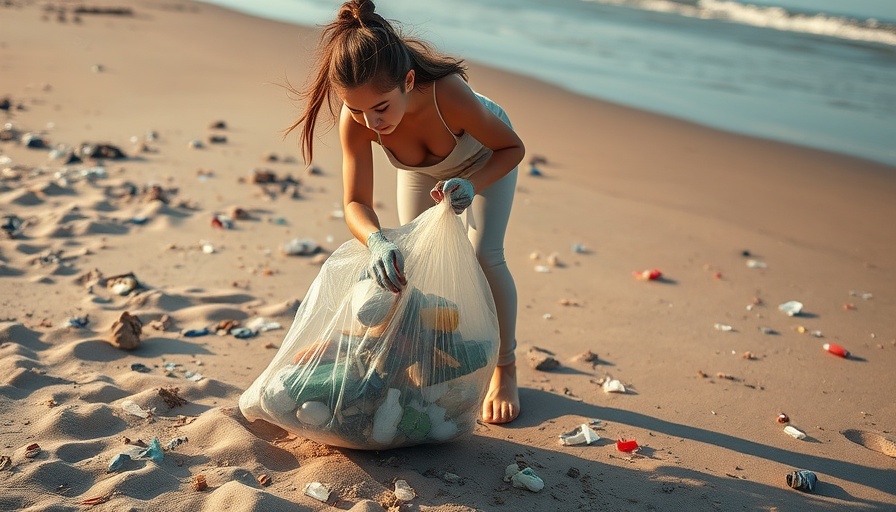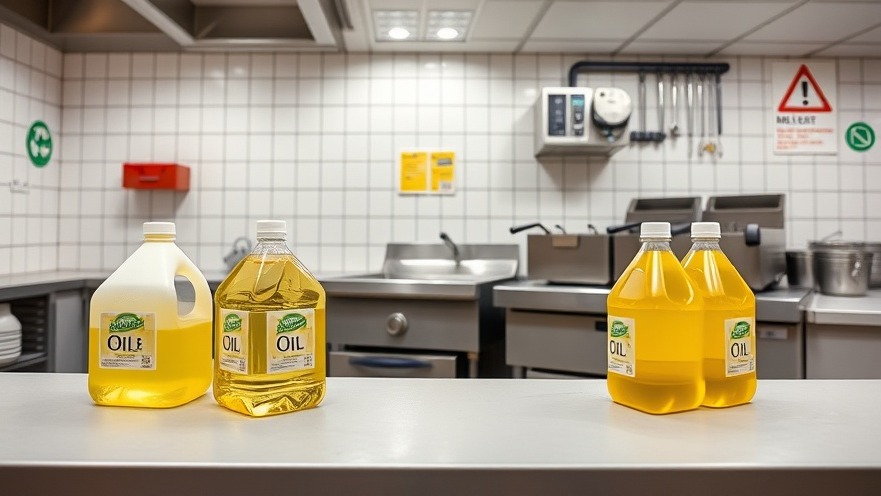
Plastic Pollution: A Crisis We Can Tackle Together
Plastic pollution is often seen merely as an ocean issue—but its roots reach deep into our everyday lives. Every piece of plastic, be it a bottle, bag, or wrapper, starts its journey right from our homes. When we toss it away, it can wind its way into rivers and other waterways, eventually reaching the ocean. Unfortunately, the United States, which generates more plastic waste than any other nation, is currently failing to mitigate this ongoing environmental crisis.
Understanding the Problem: Key Findings on Plastic Waste
According to the Ocean Conservancy’s latest report, the situation is dire. Most U.S. states receive poor marks in plastic policies, and the national recycling rate is shockingly below 9%. Although a significant 80% of Americans consider plastic pollution to be a critical issue for ocean health, recycling—while important—isn't a comprehensive solution to the systemic problems that persist in our waste management practices.
The Role of Consumers: How We Can Make a Difference
This isn’t merely an institutional failure; it's a community call to action. As consumers and responsible citizens, we can lead the way toward change. Here are actionable strategies to make a noticeable impact:
Refuse and Reuse: Be the Change
Choose to refuse single-use plastics at the source. If you're dining out, kindly request reusable tableware. Sadly, most states don’t mandate that restaurants provide reusable options, but your voice matters. Let establishments know that you'd prefer to support businesses that prioritize sustainability.
In addition, advocating for bottle refill infrastructure can lead to significant improvements. States with deposit return systems see recycling rates surpass 60%, far greater than the national average. Being aware of these systems and utilizing them can push local governments to mirror these successes.
Local Action: Push for Change
Advocacy on a local level can lead to meaningful policies. However, nearly half of U.S. states have enacted “preemption laws,” which disallow local governments from enacting tough regulations on single-use plastics. If your locality is stymied by a lack of choice, organize to challenge these laws—your community deserves a chance to make environmentally conscious decisions.
Effective policies are already in place. For example, Maryland has seen a 65% decline in plastic foam pollution after banning the material. Support and participate in these initiatives to create tangible local impact.
Join the Clean-Up Movement
Be a part of the solution by joining a local cleanup or logging plastic waste through apps like Ocean Conservancy’s Clean Swell®. Every effort contributes to building the world’s largest database on marine debris, informing policies that aim to reduce plastic waste.
Bringing the Message Home: Adopt Eco-Friendly Practices
As boutique hospitality professionals, integrating sustainable home design and eco-friendly principles is crucial. Transitioning to zero-waste practices isn’t just a trend; it's a commitment to the planet. Whether through composting, implementing energy efficiency measures, or adopting natural landscaping techniques, your choices can inspire guests and influence change.
Additionally, maintaining toxin-free environments will create a safe haven for guests and promote overall well-being. It’s not just about the business; it’s about fostering a community that values and advocates for sustainability.
A Collective Responsibility: Building the Future Together
This is a moment to reflect and take action. Individual choices ripple out, creating larger waves of change. The future of our planet is not solely in the hands of policymakers—it lies in our collective commitment as consumers, entrepreneurs, and advocates. Join the movement toward a cleaner, greener earth.
If you value sustainability in your business practices, make an active choice to engage with this pressing issue in your operations and interactions. This conscious effort can inspire others and drive collective progress. Together, let's rethink our relationship with plastic and work toward a future free from pollution!
 Add Row
Add Row  Add
Add 




Write A Comment